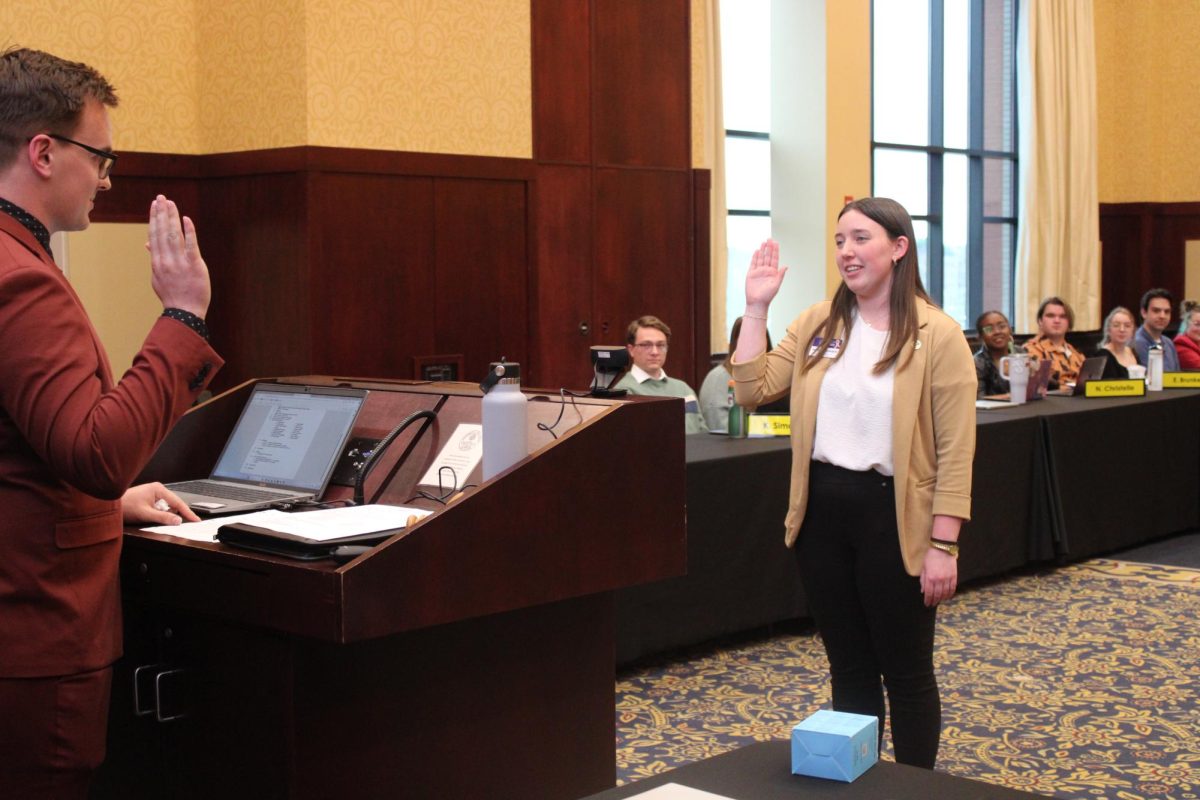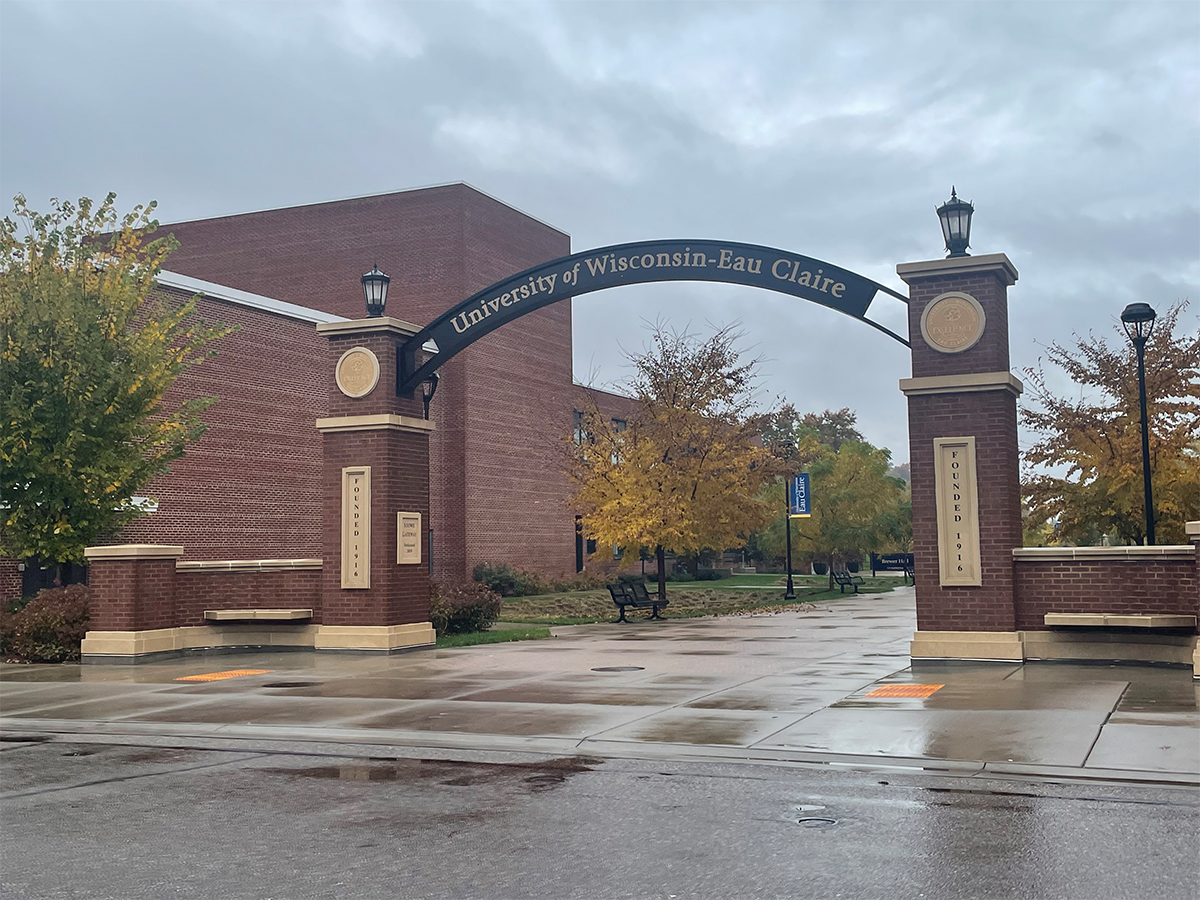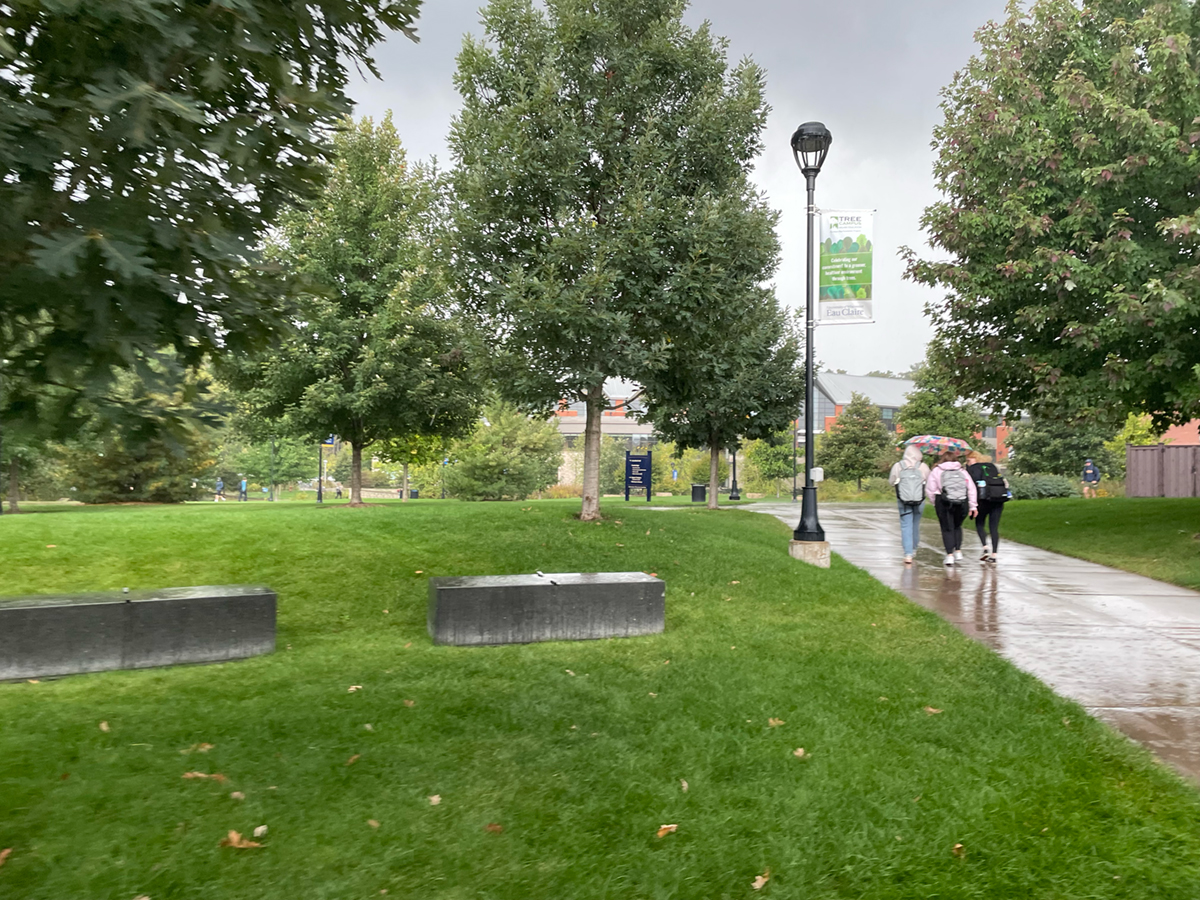UW-Eau Claire students pay some of the lowest segregated fees in the UW System, but those fees would have been higher if the new student center referendum had passed, Chancellor Donald Mash said at the Chancellor’s Roundtable Wednesday afternoon.
Concerned students and administrative faculty gathered with Mash in the President’s Room of Davies Center to discuss the failed student center referendum along with the budget’s impact on Eau Claire.
Mash said the timing of the new student center referendum was unfortunate, saying it gave students too many increases to accept at one time. Overall, students are worried about the total cost of attending Eau Claire, Mash said.
Associate Dean of Students Bob Shaw said more effective ways of talking to and informing students of the new student center project need to be obtained, noting that it’s very difficult to get students to take advantage of the information that is out there.
“Students have gotten so busy that they don’t want to look for (information),” Senior Karen Luger said.
Junior Elizabeth Burgener said she would have been more supportive of the new student center project if she had seen a picture of the proposed building.
“I had no idea what it was going to look like,” Burgener said.
Sophomore Sandra Boone agreed and said that students wanted to see something more concrete to vote on.
“It’s very expensive to ask architects to design something and then throw it out and redesign it,” Vice Chancellor Andy Soll said.
Mash added that interest rates are probably as low as they’re ever going to go right now.
“Five years from now, we may end up with the same segregated fee for less of a building,” Mash said. “The economy may turn around and interest rates may go up.”
Luger said students need to understand the difference between segregated fees and tuition, along with why tuition will be increasing.
The deepest budget cut in history is likely to have a profound impact on class sizes, courses offered and the number of sections available for classes next academic year, Shaw said.
Next semester, with the proposed cut, tuition would increase $250 per student, per semester. This tuition increase will replace about $150 million of the $250 million cut, Mash said. The remaining $100 million is where students will see cuts in their education.
“There will be fewer people to do the work,” Mash said, “so we have to cut back on what we offer students.”






